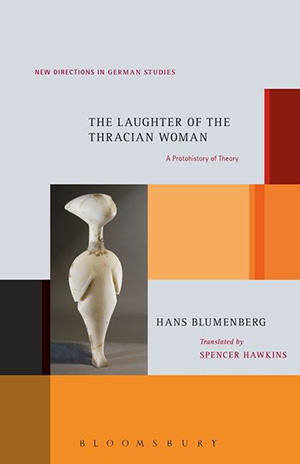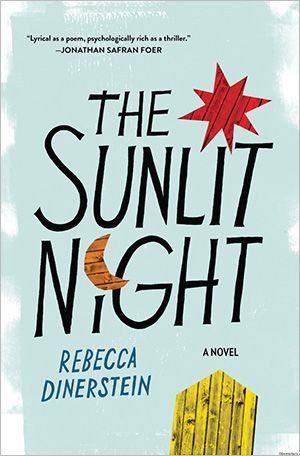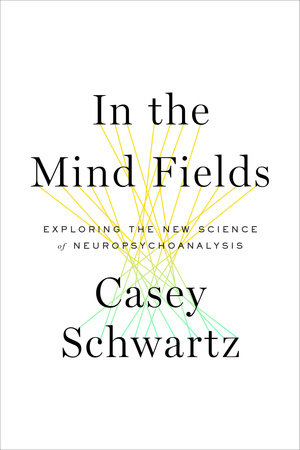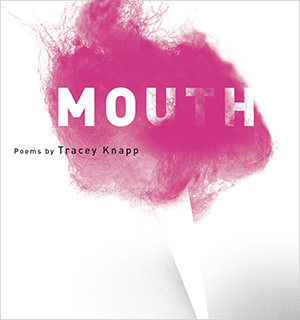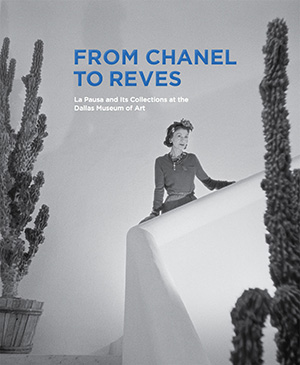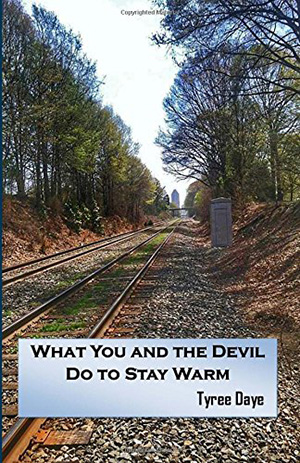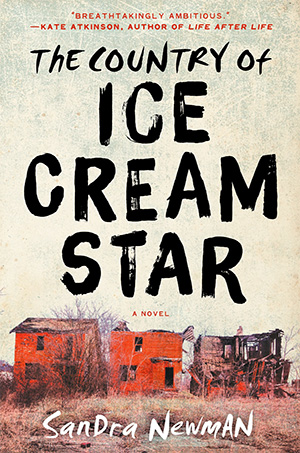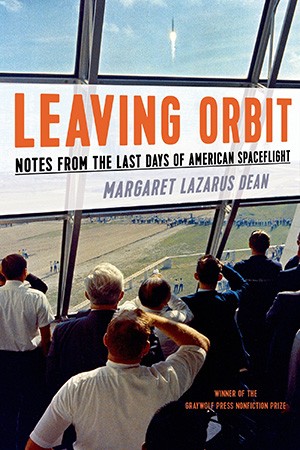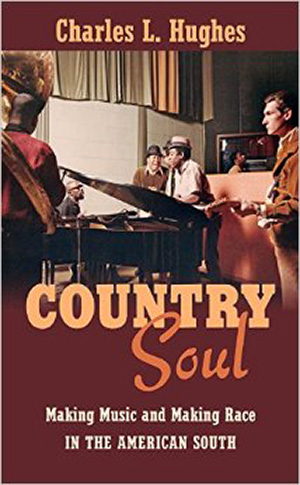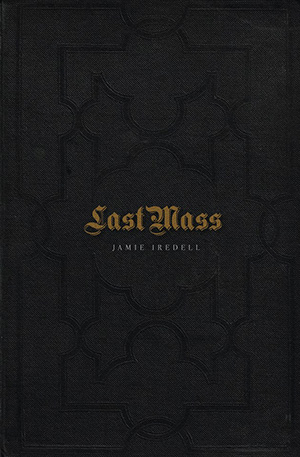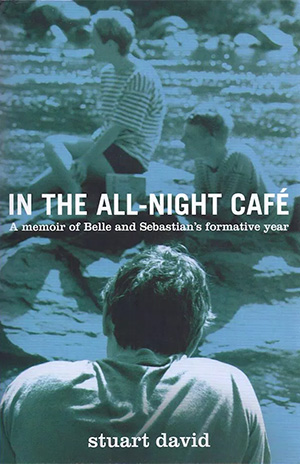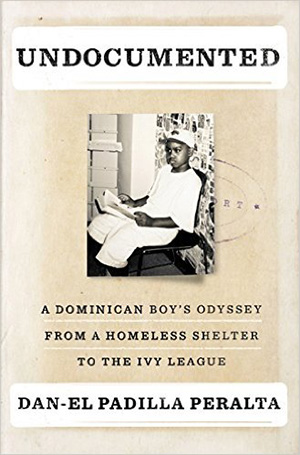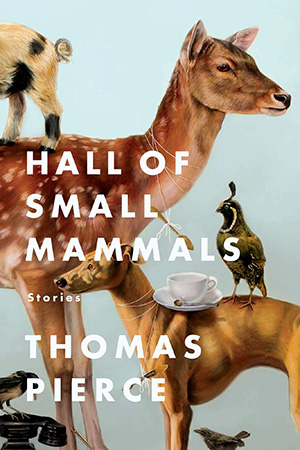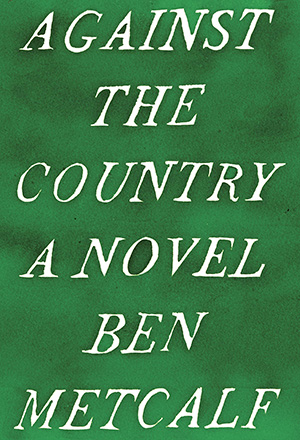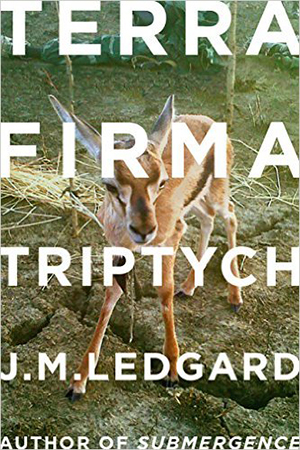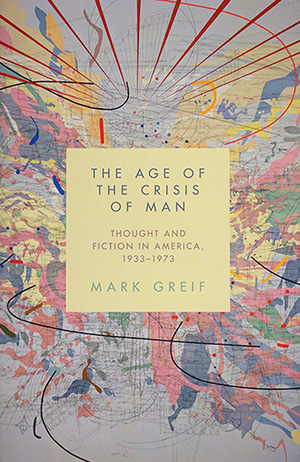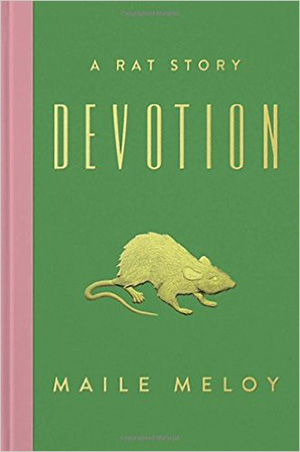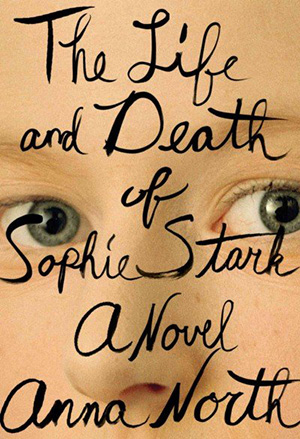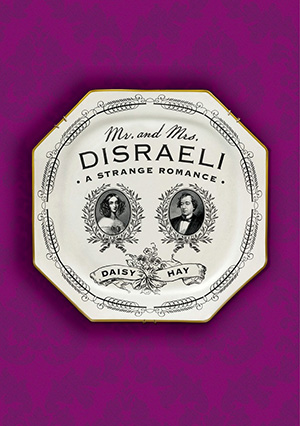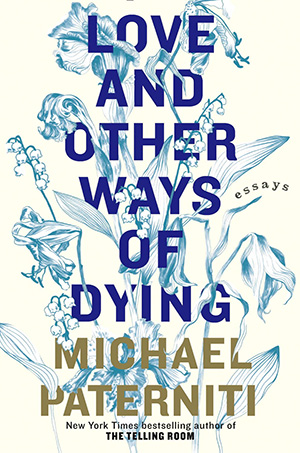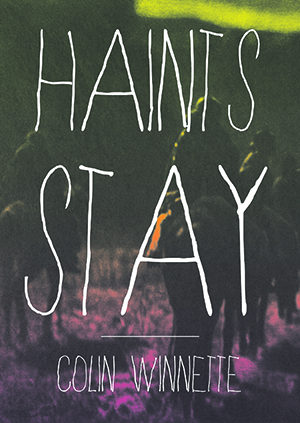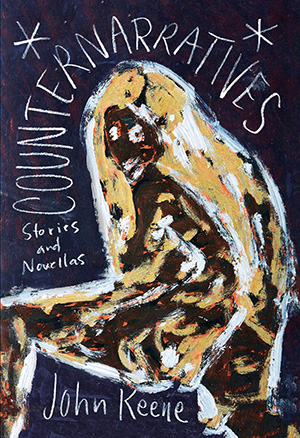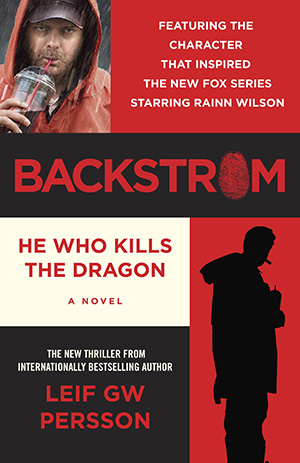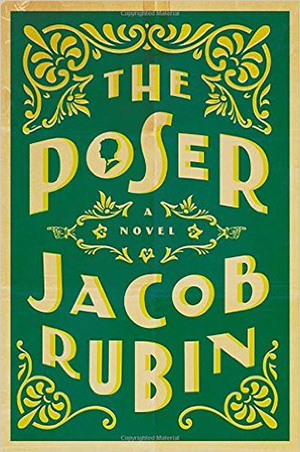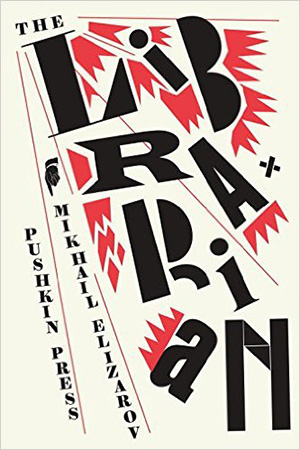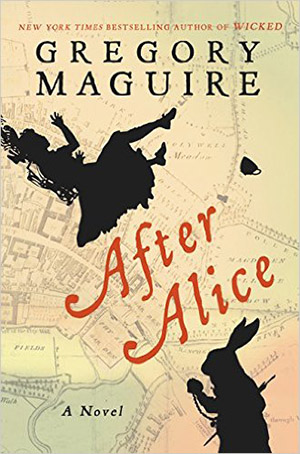
Slate is an Amazon affiliate and may receive a commission from purchases you make through our links.
The Overlooked Books of 2015
Slate Book Review critics recommend 27 books you’d probably love if only you knew about them.
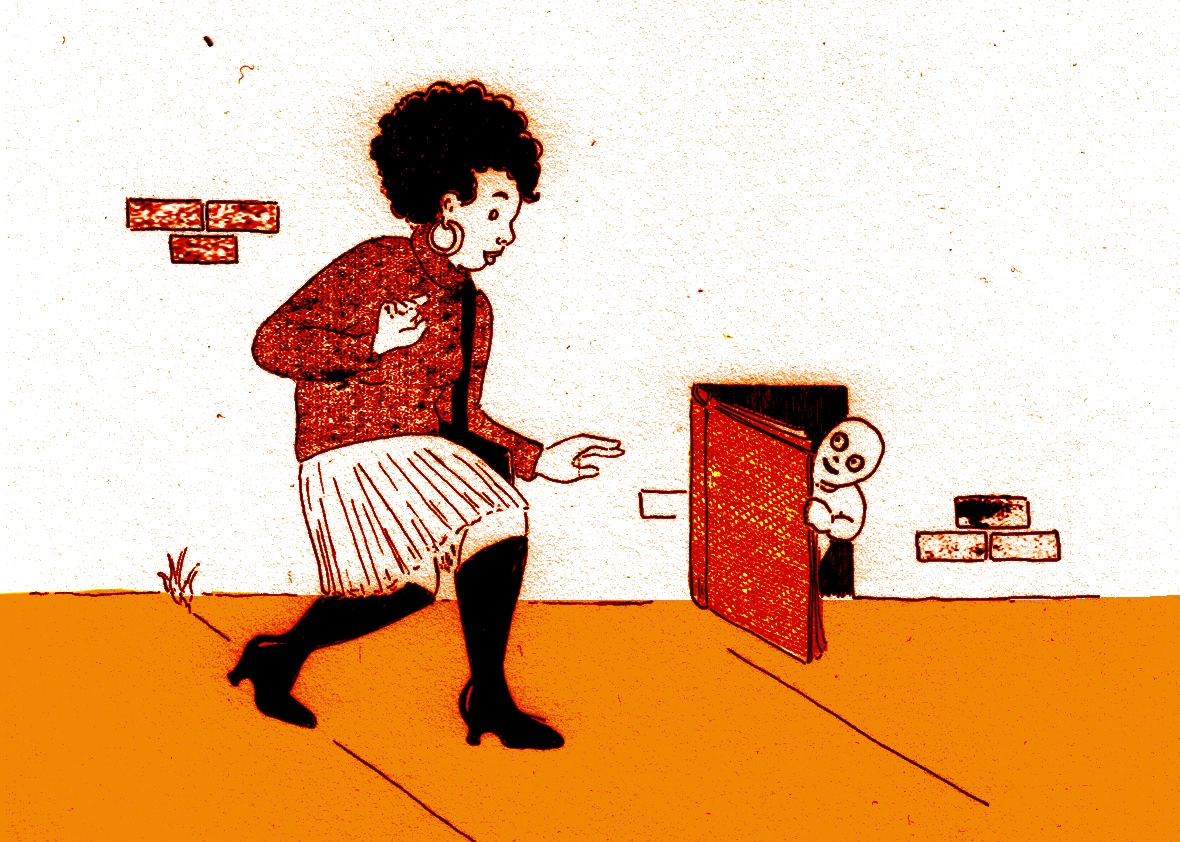
Illustration by Emily Flake
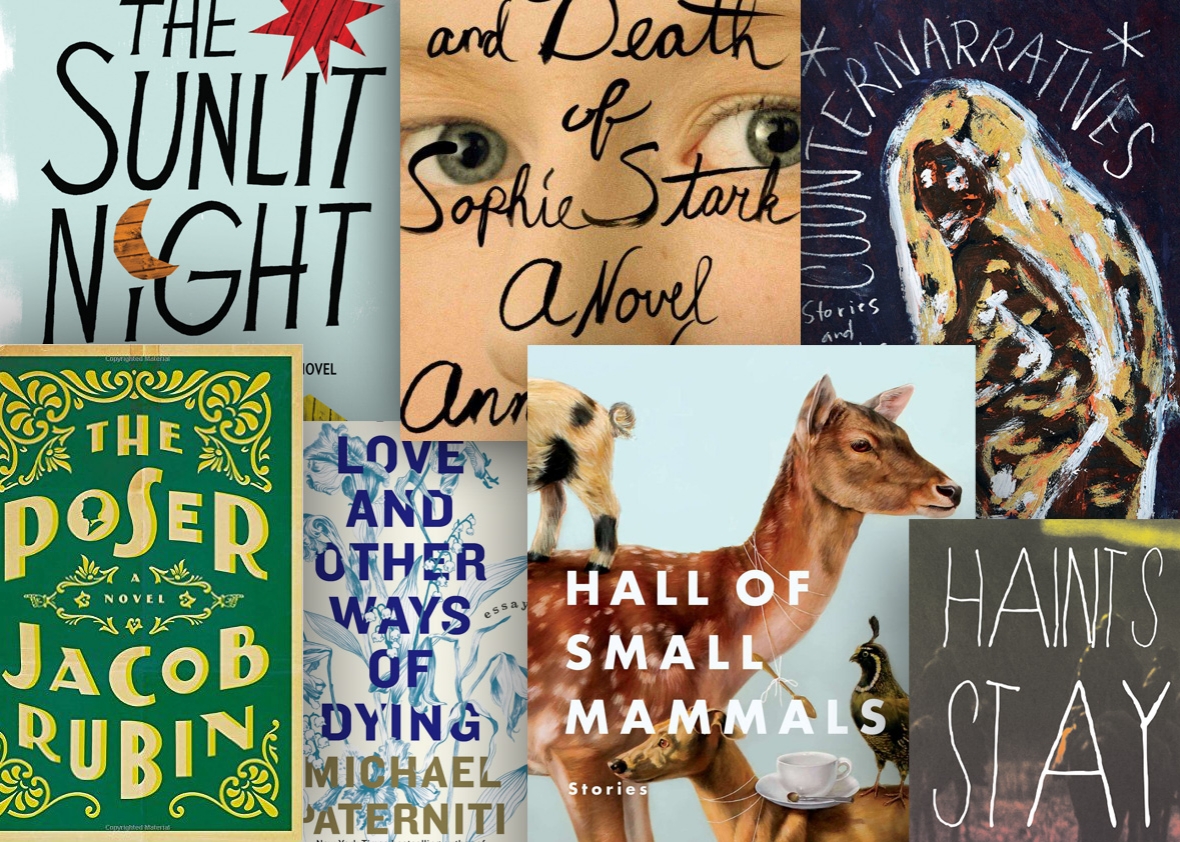
Slate’s Best Books of 2015 coverage:
Monday: Overlooked books of 2015.
Tuesday: The best lines of 2015.
Wednesday: The best comics of 2015.
Thursday: Laura Miller and Katy Waldman’s favorite books of the year.
Friday: The best audiobooks of 2015.
* * *
David Auerbach recommends The Laughter of the Thracian Woman, by Hans Blumenberg:
Hans Blumenberg’s The Laughter of the Thracian Woman traces the history of an origin myth of science. Greek astronomer Thales of Miletus was the original absent-minded professor. He was walking and studying the night sky, it is said, when he tripped and fell into a well, leading him to theorize that water—and not a god or gods—was the prime mover of reality. German-Jewish “philosophical anthropologist” Blumenberg follows the myth of Thales through the ages to show that the scientific endeavor is necessary but also fundamentally ridiculous. It culminates with an attack on “incomprehensible arrogance” as the most destructive human tendency, reaffirming modesty and skepticism. Today everything is made of data instead of water; Blumenberg, translated with great care by Spencer Hawkins, reminds me that we are still as ridiculous as Thales.
Laura Bennett recommends The Sunlit Night, by Rebecca Dinerstein:
One of the straight-up loveliest books I read this year was my friend Rebecca Dinerstein’s debut The Sunlit Night, about a young woman who moves from Manhattan to an artist colony on an archipelago in the Norwegian sea, and falls in love with a young man who is also in exile from New York. Dinerstein has a totally singular voice: economical but intense, her metaphors so tightly built that you can’t imagine losing a single word from any sentence. She writes about relationships—their early bliss, their slow unraveling—with unbelievable precision and humor: “Gradually,” her heroine realizes with dismay, “the fact of our being not merely incompatible, but enemies, had snuck up on this dream."
Noah Berlatsky recommends Again, by Kathleen Gilles Seidel:
Sans publicity or fanfare, romance writer Kathleen Gilles Seidel gave four of her classic novels a digital re-release last June. I think my favorite is Again, from 1995, a contemporary romance set on the set of a Victorian soap opera. Seidel has great fun playing the fictional soap plot against the “real” romance, tangling the characters and the characters playing characters in loops of meta-angst, uncertainty, and love. The deft juxtaposition of two beloved-by-women, critically despised genres is a virtuoso argument in itself—as is the way in which showrunner Jenny Cotton and star actor Alec Cameron trade and re-trade gender roles with a sometimes clumsy, sometimes heart-breaking grace. After you finish Again, try Please Remember This—and then all the rest of Seidel’s books.
Jacob Brogan recommends In the Mind Fields, by Casey Schwartz:
Casey Schwartz’s In the Mind Fields purports to offer an insider account of a new movement in neuroscience, one that fuses classical Freudian psychoanalysis with more modern surgical techniques. Ultimately, however, Schwartz spends more time memoiristically exploring the lives and worlds of the physicians she discusses than she does their work. While this personal style might be a fault in another context, here it echoes the peculiar fusion of self-inspection and scientific investigation that plays out in many of Freud’s own works. For Schwartz as for Freud, introspection becomes a means of exploring the external world and the otherwise opaque minds of the people who occupy it. In the process, she makes a powerful case for the persistent medical and scientific significance of a figure whose real thought has been largely forgotten.
Stephen Burt recommends Mouth, by Tracey Knapp:
Parts of Mouth feel like a mix tape from somebody with whom you’ve recently fallen in love; other parts feel like a very good anthology that might be called Casual Poems About Urban Living at, Say, 30. It’s a big book of vivacious poems small enough to memorize or take along in your satchel or purse: It’s also a font of verbal invention, new words that make new, and improve, a troubling Valentine’s Day or a sluggish commute, “a topological menu/ of the inner universe, the Idiot’s Guide/ to What We Are Able to Tolerate.” One poem depicts a relationship as a restaurant that’s already closed (“The Chairs Are on the Table”); the next sees poetry itself as an “Emergency Exit,” rain on the fire escape. Usually, Knapp stays guardedly optimistic, making her verse inviting, sometimes spiked, and never dull: “I’m boss in this game, the kind/ of boss who would never fire you.” Part rom-com, part scrapbook, part Frank O’Hara, part Robert Herrick, and, yes, part chick lit, it’s a book that hurts, and a book that flirts (“I would never hurt you, at least/ not today”). It’s also part of the least self-important, and therefore the most important, tradition of lyric, the tradition of trying to make the tiny moments, their delights and disappointments, last: for example, “the back seat: your hands,/ my green soccer shorts. I remember/ the shorts! It’s always the little things.”
Kimberly Chrisman-Campbell recommends From Chanel to Reves: La Pausa and Its Collections at the Dallas Museum of Art, by Olivier Meslay and Martha MacLeod:
As slim and elegant as a little black dress, this beautifully illustrated book (available to order through the Dallas Museum of Art’s bookstore) recreates La Pausa, Coco Chanel’s French Riviera bolthole, and tells the unlikely story of how the villa and its contents came into the museum’s collection in the 1980s. (The House of Chanel has since bought the property itself.) So much has been written about Chanel that it’s hard to find anything new to say about her, but this privileged look at the only house she built and decorated herself offers fresh insights into her lifestyle and inspirations.
Jonathan Farmer recommends What You and the Devil Do to Stay Warm, by Tyree Daye:
Pity the chapbooks. Small printings of small books, typically published with more gumption than money, they’re often too invisible even to overlook. But for the same reasons, they tend to be especially welcoming, not altogether answerable to the economy that hems our days. What You and the Devil Do to Stay Warm, the second chapbook from the very young, wonderfully imaginative and direct Tyree Daye, is itself about the kind of life our economy seems, from the outside, to ignore—even as it sends its destructive roots down into the fragile houses and apartments where people huddle, hungry, against the cold. “So you go to your leftover butts,” Daye writes at the end of one poem, “picking out the wet ones./ Even the smoke you blow doesn’t rise.” And yet these poems do rise, repeatedly, their rich singing a kind of resistance, one thing poverty can’t preclude.
Sara Goldsmith recommends The Country of Ice Cream Star, by Sandra Newman:
Post-apocalyptic worlds are so ubiquitous these days that they seem normal. One of the strengths of this novel, which tells the tale of its heroine, Ice Cream Star, in a future America where no one lives past 18, is that it drives home just how strange, wild, and different such a ruined place would be. It accomplishes this task in large part through its narration in an invented, poetic dialect (which might help explain why it hasn’t landed next to The Hunger Games on the best-seller list). A little like Hanya Yanigihara's A Little Life, this is a big book that, while not always an easy read, immerses you in its world in a way that's not easily forgotten.
Jaime Green recommends Leaving Orbit, by Margaret Lazarus Dean:
Margaret Lazarus Dean is on what seems like a simple quest: “I want to know, most of all, what it means that we went to space for fifty years and that we won’t be going anymore.” In telling the story of American spaceflight and the last days of the shuttle program, she finds a knot of patriotism, science, ego, awe, and the very human quest to make meaning in the world. It’s the meaning that preoccupies Dean, and the result is a book more complicated and delightful than any straightforward NASA history could be.
Jack Hamilton recommends Country Soul: Making Music and Making Race in the American South, by Charles Hughes:
The racially mixed R&B that came out of Memphis and Muscle Shoals during the 1960s is some the most important music in American history, and some of the most susceptible to feel-good platitudes. Hughes’ careful history shows that Stax and Fame and American and other iconic studios weren’t the interracial utopias we’ve often wished them to be—they were messy and complicated places that constantly grappled with the times and places that produced them. By digging through the myths and unearthing the real, imperfect human beings behind the music, Country Soul manages to make their accomplishments all the more astonishing.
Jenny Hendrix recommends Last Mass, by Jaimie Iredell:
Amid wall-to-wall coverage of Pope Francis’ U.S. visit this fall, I was surprised not to hear more about Jamie Iredell’s timely Last Mass, the publication of which preceded that visit by just a month. An exemplary work of creative nonfiction in the vein of Maggie Nelson’s Argonauts, the book explores the beauties, cruelties, and contradictions of faith by way of two missions: The brutal religious mission to the native peoples of California carried out in the 1700s by Father Fray Junipero Serra—who, controversially, the pope canonized during his stateside stay—and a creative one, as the author retreats to a Georgia mountain cabin for the purposes of writing a novel about Serra. Instead, Iredell creates a bricolage of history, religious doctrine, and memories of growing up Catholic in a pious California household, as well as bears and baseball. It’s an account both of a blood-level faith (with all the transgressions and guilt that implies) and of the blood that’s been shed in its name, shaking apart the tidy truths and approved narratives of the church in favor of complexity, humor, and honest observation.
Benjamin Herman recommends In the All-Night Café: A Memoir of Belle and Sebastian’s Formative Year, by Stuart David:
Over the past 20 years, which songwriter has written more great pop songs than any other? The correct answer, I would submit, is Stuart Murdoch, the leader of the Glaswegian band Belle and Sebastian. Stuart David’s memoir of forming a band with Murdoch is an Amadeus for the twee set—while David labors to hone his songwriting skills, his new friend can pluck awe-inspiring melodies, Mozart-like, out of thin air. Although David lacks Salieri’s bitterness, he articulates that ineffable combination of gratitude and envy that we all feel when we get an up-close view of extraordinary, unreachable talent.
Eric Herschthal recommends Undocumented: A Dominican Boy’s Odyssey From a Homeless Shelter to the Ivy League, by Dan-el Padilla Peralta:
No one in Dan-el Padilla Peralta’s graduating class at Princeton knew much about his backstory: not that he was undocumented immigrant from the Dominican Republic; not that had spent much of his youth in New York’s homeless shelters; not that the scholarship he had received to get his doctorate in classics, from Oxford, stood in peril because of his continued undocumented status. All they knew was that Peralta, a soft-spoken, popular classmate, was graduating at the top of their class. Only when the Wall Street Journal ran a profile of Peralta on the eve of his Princeton graduation, in 2006, did the basic details of his story come out. Earlier this summer, he told this story in far greater detail in his memoir, Undocumented, narrated with the grace and erudition you’d expect from a classics scholar. But if you’re looking for a perfect Hollywood ending, you won’t exactly find it: Next year, even though he will start his job as a classics professor at his alma mater, his legal status remains in limbo.
Elliott Holt recommends Hall of Small Mammals, by Thomas Pierce:
I’m always glad to see short-story collections get attention, and this year there was a lot of talk about three great ones: Joy Williams’ The Visiting Privilege, Lucia Berlin’s A Manual For Cleaning Women, and (since it won the National Book Award last week), Adam Johnson’s Fortune Smiles. But I read several other terrific story collections. Among them: Thomas Pierce’s Hall of Small Mammals, a debut which was published in January. Pierce’s masterful stories are wildly imaginative and deeply humane. They flirt with the absurd, but feel realistic and have timeless emotional heft. (In one story, an extinct woolly mammoth is cloned for a TV show and then ends up living with the TV producer’s mother.) This book got a lot of great reviews when it was published last winter and I hope it isn’t forgotten in the year-end lists.
Fred Kaplan recommends Against the Country, by Ben Metcalf:
Ben Metcalf’s debut book is subtitled “A Novel,” but it’s also part jangled memoir, part bristling jeremiad against all things pastoral, nostalgic, and rugged—a debunking of Jeffersonian Americana—told in stylized Southern Gothic, something like Faulkner stoked on mescaline, though finely honed after the comedown. Rifling through memories of growing up in Goochland County, Virginia, with parents who’d fled the city under the illusion that nature is mankind’s friend, Metcalf writes prose that purrs, growls, and seethes with the barely escaped madness of an exile still catching his breath.
Lydia Kiesling recommends Terra Firma Triptych, by J.M. Ledgard:
If you read J.M. Ledgard’s 2013 novel Submergence, you know that he operates on a different plane of consciousness than most of us. This year he came out with Terra Firma Triptych, a three-part essay describing, variously, a walk through South Sudan, the future site of a Rwandan airport, and his efforts to establish droneports connecting rural areas in Africa to goods and services. I think part of the reason Terra Firma flew slightly under the radar is that it is an e-book, but the main issue is that it’s weird. Is it an ecological meditation? The world’s longest, loveliest press release? A utopian (or dystopian) call to arms? I’m not sure. But Ledgard is an unjustly beautiful writer with a particular moral vision, and the things he writes will surprise and move you.
Evan Kindley recommends The Age of the Crisis of Man: Thought and Fiction in America, 1933–1973, by Mark Greif:
Mark Greif’s The Age of the Crisis of Man has hardly been ignored, but it’s the kind of book whose importance will likely only become clear in the fullness of time. In this ambitious, idea-packed study of midcentury American literature, Greif recovers a cultural discourse that feels like a lost tongue: the exorbitant claims made for the novel by critics like Lionel Trilling, F.O. Matthiessen, and Malcolm Cowley. Were these just delusions of grandeur? Or was something really going on in this period, something that had to do with the horrifying revelations of the Holocaust and the influx of European émigrés to American shores in the 1930s and 40s? Greif approaches what could be a dry historical subject with a fiction writer’s flair for character and narrative pacing, and his inventiveness and sense of wonder never subside. It’s a great work of criticism about the idea of greatness, and where we get such ideas.
Dan Kois recommends Devotion: A Rat Story, by Maile Meloy:
When I first acquired this tiny book—a single story by the remarkable Meloy (Liars and Saints), packaged in a handsome 4-inch-tall edition—I almost immediately lost it in the jumble and tumble of books in my house. Occasionally it would peek its nose out just long enough for me to see it out of the corner of my eye, but when I went hunting for it, it was always gone. But I couldn’t stop thinking about it—it gnawed at my memory, making me wonder every day where it could be hiding. Then this week I finally trapped and read this sensitive, disquieting fable of a young mother whose dream house has a surprise in store. Now I’ll never get it out of my head. Luckily I know right where I put it—it’s right over … uh …
Miriam Krule recommends The Life and Death of Sophie Stark, by Anna North
Anna North’s provocative second novel has been hailed as a book about “genius,” but for me it was more about the basics: the craft of telling a good story. And Sophie Stark is a great story, it’s just not about Sophie. Its chapters are alternatingly told from the perspectives of the people who knew and admired her, and with each one we get a better picture of the ways in which people knowingly and unknowingly influence the people they love. The book opens at a Moth-like storytelling event with a tale from Sophie’s soon-to-be girlfriend; stories are told and retold, and with each telling new insight is unraveled. With each new chapter we get another bit of Sophie’s life, but what we’re really getting are the bits of the lives she’s influenced—all masterfully crafted by North.
Laura Miller recommends Mr. and Mrs. Disraeli: A Strange Romance, by Daisy Hay:
Readers seem to have an insatiable appetite for books about the paradoxes of modern marriage, but it’s never been a simple institution. Daisy Hay’s biography of one of the most successful political marriages of all time—between the great 19th-century statesman and novelist Benjamin Disraeli and a sailor’s daughter who was 12 years his senior—is as engrossing as any thriller. He had talent, she had money; theirs was, they both acknowledged going in, a union of convenience. But it ripened into a love so undeniably real that this unlikely couple won the heart of a nation.
Mark O’Connell recommends Love and Other Ways of Dying, by Michael Paterniti:
In casting about for an overlooked book to recommend here, I very nearly overlooked Michael Paterniti’s collection Love and Other Ways of Dying, in the mistaken assumption that a book this good was unlikely to have been overlooked. (It’s easy enough, obviously, to overlook the extent to which a book has been overlooked.) Many of these 17 essays and profiles treat subjects—an 8-foot-4-inch Ukranian farmer, a Iranian who has spent most of his life stranded in Charles de Gaulle Airport, an elderly man in possession of pieces of Einstein’s brain in Tupperware container—which could, in less sensitive hands, verge on exploitation. But Paterniti is a reporter of rare skill and empathy, and a writer of measured elegance, and these pieces are exceptional artifacts of literary journalism. It’s one of the best books I’ve read all year, overlooked or otherwise.
Lauren O’Neal recommends Haints Stay, by Colin Winnette:
This novel follows the adventures of brothers Brooke and Sugar, two killers for hire in the Wild West—the very Wild West, a hallucinatory world more like an acid trip than any classic Western. Case in point: the third protagonist is a young boy with no memories or lines on his palms who mysteriously wakes up between the brothers one morning. The surreality of the violence (death rites involve sawing out a person’s teeth and burying them) highlights the inherently bizarre nature of violence in the real world. This book gave me literal nightmares—but somehow in a good way.
Mark Sussman recommends Counternarratives, by John Keene:
Yes, this received some positive coverage in 2015, but it isn’t enough, dammit! Protean in style, erudite in reference, uncanny in effect, these stories and novellas inhabit, conjure, and invent characters written out of history by slavery, racism, and subordination. Keene bounces from 17th-century Brazil to 18th-century Massachusetts, from a creepy colonial monastery to an experimental balloon launch by the Union Army. You could dismiss these stories, with their trippy conceits and self-reflexive narrators, as Borgesian cerebral hemorrhages. But while Ta-Nehisi Coates’ Between the World and Me is busily collecting well-deserved laurels, Keene’s Counternarratives, with its lyricism and intelligence, is no less urgent in its commentary on our present political moment.
June Thomas recommends Backstrom: He Who Kills the Dragon, by Leif G.W. Persson:
I’ve never been a fan of “Nordic noir”—Scandinavian for stories about repulsive crimes—but Persson’s detective was being transported from Stockholm, Sweden, to Portland, Oregon, for a (terrible) new TV series, so I picked up the latest novel as a form of due diligence. Detective Superintendent Evert Backstrom is vile—a racist, sexist, homophobic, xenophobic thief and liar—and his view of his homeland so bilious that I found myself inhaling Persson’s entire English-language oeuvre in a matter of weeks. His trilogy about the unsolved 1986 murder of Prime Minister Olof Palme and other politically motivated crimes in recent Swedish history are the best books I’ve read all year: creepy, conspiratorial, and insanely compelling.
Julia Turner recommends The Poser by Jacob Rubin:
The Poser tells the story of a guy who has an uncanny, almost uncontainable knack for impersonation. No matter who he encounters—friends, teachers, strangers on the street—he scans for what he calls the “thread,” the skein of behavior that, when imitated, conjures the original. It’s a skill that gets him into trouble as a kid and lends him surprising power—perhaps too much—once he is grown. The book, written by my friend Jacob Rubin, is full of dazzling sentences and dazzling ideas. It’s smart about what makes mimicry so devastating and what it means to see another self and take it as your own.
Jeff VanderMeer recommends The Librarian, by Mikhail Elizarov:
In this brilliant winner of the Russian Booker Prize, the novels of a boring, pedantic Soviet-era writer turn out to convey unusual powers for those stalwart enough to read them through to the end. Rival groups of “librarians” hoard the books and thus the powers, resulting in several bloody conflicts. From there, Elizarov meticulously spins out a tale by turns hilarious and harrowing. A metafictional conceit becomes very intense and tactile due to the Ukrainian author’s own unusual powers—without undermining the absurdist elements. Immensely entertaining, The Librarian lives up to comparisons to the work of Gogol and Bulgakov while being very much its own thing.
Katy Waldman recommends After Alice, by Gregory Maguire:
This—from the world-of-wonders cartographer behind Wicked—is an almost criminally smart and lovely revision of Lewis Carroll’s Alice books, one that keeps alive their spirit of nonsense and wordplay while giving Wonderland a gently sepulchral resonance. Bonus points for an extended cameo from Charles Darwin, who (in keeping with the general frailty and humbuggishness of adults) “wheezes a pulmonary etude in a minor key.”
---
See all the pieces in the Slate Book Review.
Sign up for the Slate Book Review monthly newsletter.

